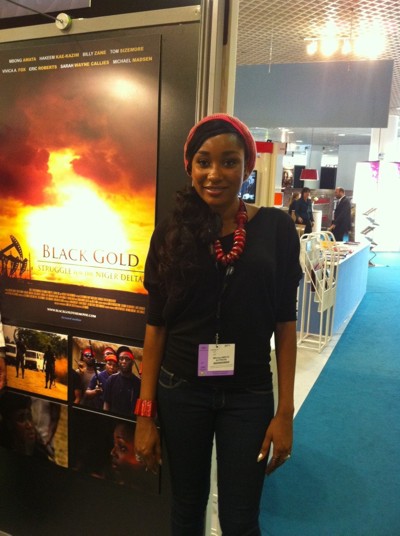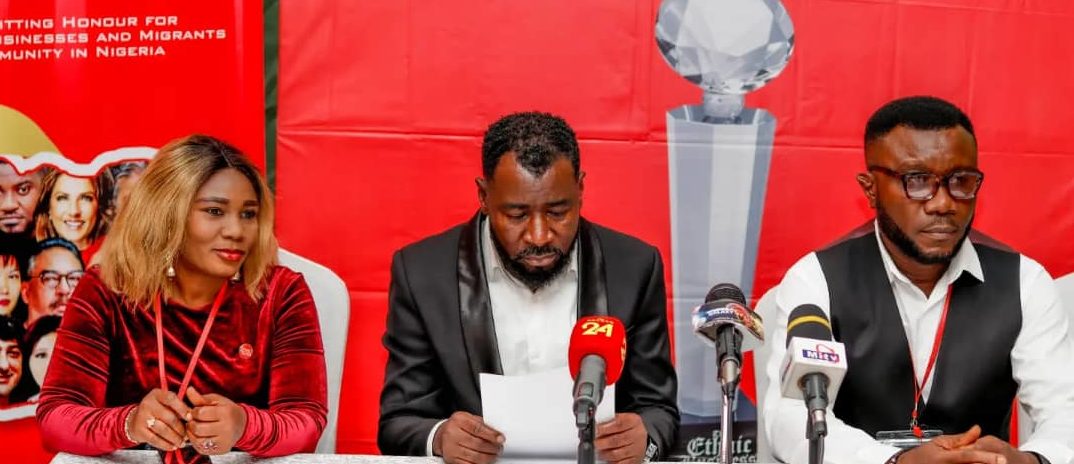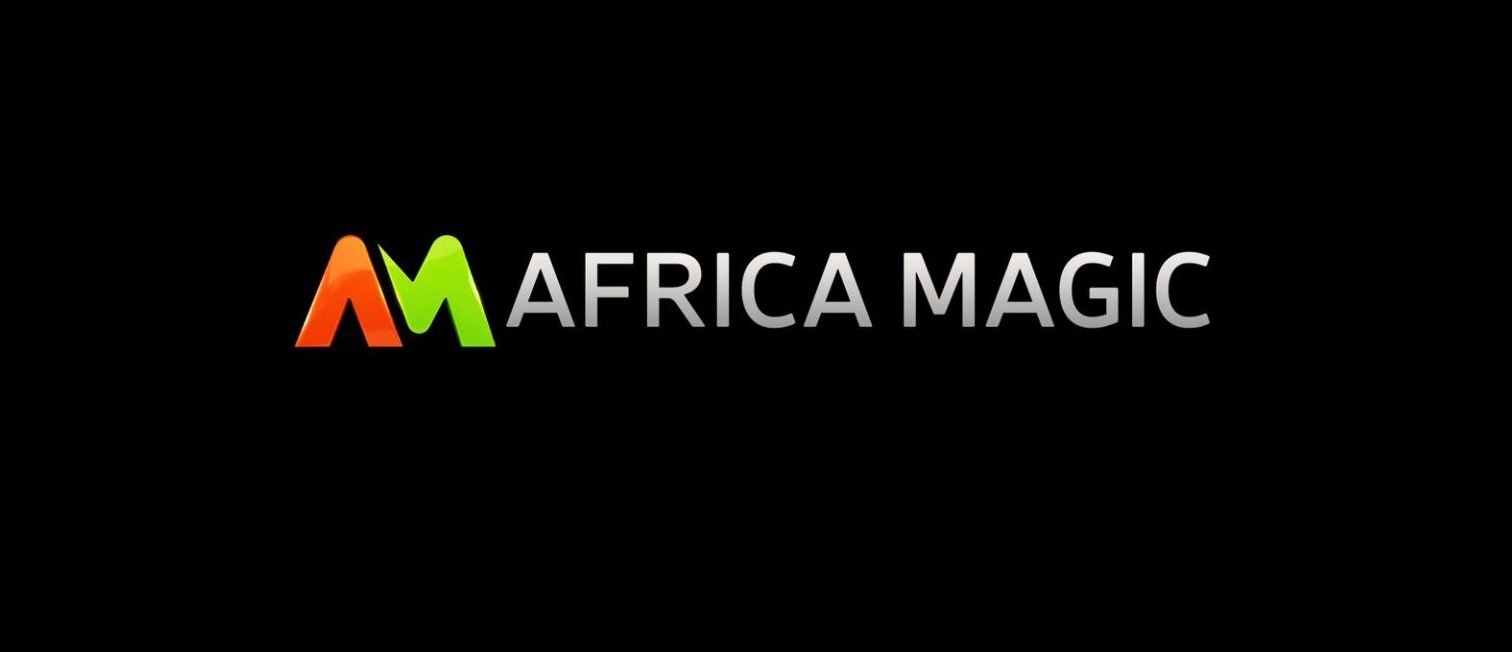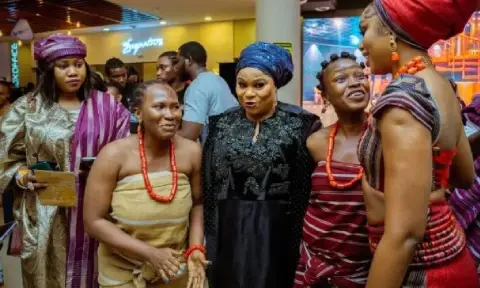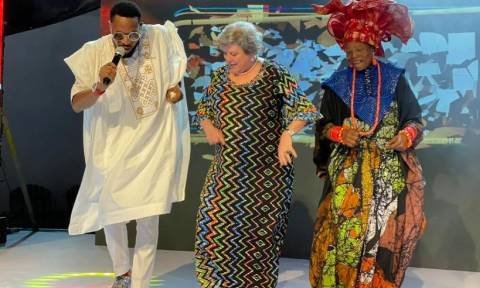
As promised two Fridays ago, we return to the concluding part of the Cannes story. Festival de Cannes, again? I apologise to anyone who’s asking this. To look on the bright side, Cannes takes but just two weeks out of a possible fifty-something weeks in a year. Anyway, this column ordinarily is a TV/Film/Radio watch. However, fortunately for many of its readers – the Airtimers – I’ve broadened its scope to include current affairs, politics, etc. But regardless of the subject matter, AIRTIME deals mainly with issues taken from the airwaves.
What was Nigeria doing in Cannes?
I asked this question two weeks ago. Taken from a totally Nigerianese perspective, the question can be misread to imply Nigeria had no business being in Cannes. But I was careful to point out that I didn’t mean that. Actually, the flip of that question could as well be what Nigeria should be doing in Cannes.
Pavilion Nigeriana
The first evidence of Nigeria’s presence in Cannes is, of course, the Nigerian pavilion which the country has had for about four years with the exception of 2010. This is a big deal considering that, in (Black) Africa, only South Africa has a pavilion. Other countries that include Kenya have stands inside the open film market.
However, since considerable time has passed, we do have to get over the novelty (and achievement) of a pavilion. What should occupy us should be what’s inside the pavilion. How does it help in selling Nigeria as a film-making nation? How does it advance the promotion of great shooting locations in Nigeria?
Yet, the Nigerian pavilion this year is only news worthy because, in comparison with previous years’, it fell short of ‘standard’. When you again put that against the backdrop that the Nigerian pavilion in previous years wasn’t anything to crow about, you’ll then understand how below par this year’s pavilion was. There were not enough meaningful souvenirs. Most of what were on display included the oft displayed ‘paper trails’ from the Nigerian Film Corporation whose Managing Director, Afolabi Adesanya, was in attendance. In the past, there used to be (at least) colourful banners by practitioners. If you didn’t have any knowledge about Nigeria, I doubt if you’d be any wiser by visiting the Nigerian pavilion.
What was wrong with our pavilion wasn’t just that we refused to host seminars/workshops/conferences as the British did daily or because we didn’t imitate country X or Y. Whatever our strengths were, they were not on display and weren’t celebrated.
What should Nigeria be doing in Cannes?
I have had cause to make several suggestions in the past. From the seemingly trivial to the more serious. There’s no reason we should parade an empty pavilion at the global film festival. For all the pleasant-sounding noises we make about tourism, there’s so much we can put on display. Even something as ordinary as the decoration inside the pavilion. Someone said we could decorate it with some of Nigeria’s fabrics. Not to mention small but well-produced souvenirs made from local materials like note pads bound with adire etc.
These are not exactly earth-shaking ideas and certainly not very new. I’ve discussed a few of them here in the past. The only reason we’re back on this subject is because nothing has changed. In fact, instead of things improving, they’re going worse. That’s the sad story of Nigeria, I know.
However, as someone who’s always optimistic (more cautiously nowadays), I believe the only alternative is to keep talking. And as it turns out, we’ve just got a brand new government coming in with a ‘breath of fresh air’. I really don’t care if that’s not very factual but I’m holding them to the new beginning we’ve been promised. So, either way, there’s a real likelihood of a few new heads taking charge. As things stand, film matters and everything concerning Nigeria’s participation at film festivals are under the Ministry of Information. Much has been said about the impropriety of lumping strange bedfellows like film and information together. Ordinarily, if our civil service is as it should be or even as it used to be, that shouldn’t matter too much.
…To whom it may concern
This last bit is to the incoming minister of information. If it happens that the current minister, Labaran Maku, is retained, that even makes things easier. First of all, the ministry of needs a new Nollywood Plan. It hasn’t appeared as if there’s a well thought out plan, certainly not in the last four years. There’s also the need for a plan in engaging the outside world. What and how are we selling to the rest of the world? What do we want anyhow from the rest of the world? Festival de Cannes is a very important film festival and by all means, Nigeria (after celebrating as one of the world’s largest film-making countries) should be part of it. But it’s wrong to go there to expose our ineptitude, lack of imagination and carelessness.
By the way, the ministry of information doesn’t have to do it alone. Someone also suggested that state governments, especially those with something to sell to the outside world, can put money into the Nigerian pavilion. Even countries that are not known for film making are selling themselves as film locations and with clear incentives on what the film makers stand to gain by choosing them.
By the way, the NFC manages the Nigerian Pavilion in Cannes. But I have made a very conscious and deliberate effort not to look at this issue through the NFC. There’s a lot that can be said about the NFC’s (mis)handling of the pavilion. But we know the Nigerian system enough to know that the change we need is from higher up. When that happens, the rest can be made or forced to follow. Not that it doesn’t help to have dynamic followers/managers.
But even before we get to that Eldorado, the ministry can set some mid to long term goals, measurable goals. The question simply is: what does Nigeria expect to achieve from its participation at Cannes and other international festivals? Can we then measure our achievements or the lack thereof?
Has a Nigerian film been screened in Cannes?
The short answer is no. The long answer is that there are different kinds of screenings in Cannes. The fact that a Nigerian film was shown in Cannes doesn’t translate to an official screening. What we’ve been doing are market screenings which are open to almost anyone. And they usually happen in small halls not accommodating more 40 to 70 people.
An official screening, whether in or out of competition, would be in one of the big theatres that seats at least one thousand and would be a really big deal. Except, of course, we deliberately decide that even a market screening is a big deal, which would tally with the Okpameri philosophy of ‘Kamion l’ehiema (Even this is good). I used to subscribe to this. But some Nigerians are asking: ‘Do those film makers who do official screening have two heads?’ Bottom line: If we crave it so much, why don’t we work/plan for it?
